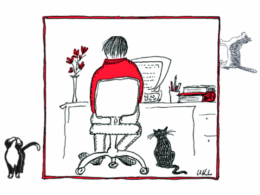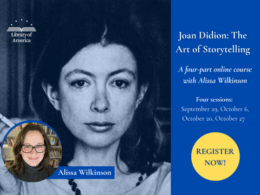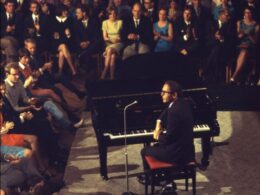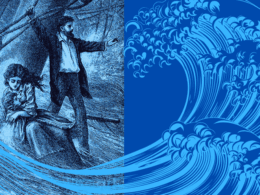(Continued from “Fifty more great opening lines from American novels”)
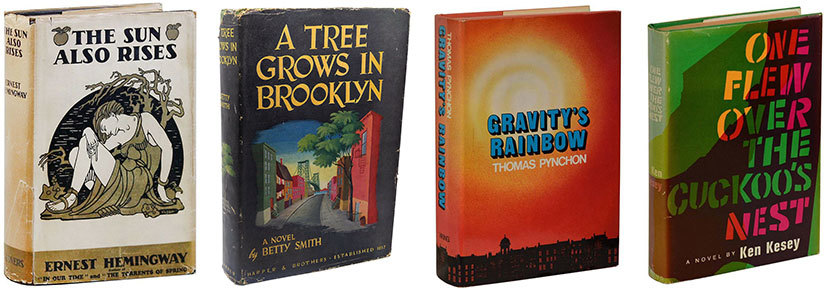
1. I feel little reluctance in complying with your request.
— Charles Brockden Brown, Wieland; or, The Transformation: An American Tale (1798)
2. When Mary Lennox was sent to Misselthwaite Manor to live with her uncle everybody said she was the most disagreeable-looking child ever seen.
— Frances Hodgson Burnett, The Secret Garden (1911)
3. One January day, thirty years ago, the little town of Hanover, anchored on a windy Nebraska tableland, was trying not to be blown away.
— Willa Cather, O Pioneers! (1913)
4. The first time I laid eyes on Terry Lennox he was drunk in a Rolls-Royce Silver Wraith outside the terrace of The Dancers.
— Raymond Chandler, The Long Goodbye (1953)
5. He speaks in your voice, American, and there’s a shine in his eye that’s halfway hopeful.
— Don De Lillo, Underworld (1997)
6. to wound the autumnal city
— Samuel R. Delany, Dhalgren (1974)
7. The light at dawn during those Pacific tests was something to see.
— Joan Didion, Democracy (1984)
8. Dusk—of a summer night.
— Theodore Dreiser, An American Tragedy (1925)
9. Though he was probably about the right age for it—fifty-eight—Druff didn’t suppose—not even when he was most fitfully struggling to bring forth a name like something caught in his throat, or spit out the word momentarily stuck on the tip of his tongue—that what he was experiencing was aphasia, or Alzheimer’s, or the beginnings of senility, or anything importantly neurological at all.
— Stanley Elkin, The MacGuffin (1991)
10. I am an invisible man.
— Ralph Ellison, Invisible Man (1952)
11. My name is Frank Bascombe.
Richard Ford, The Sportswriter (1986)
As the critic Kevin Hayes has observed, the theme of personal identity links the openings of many American books. Poe’s novel The Narrative of Arthur Gordon Pym of Nantucket (1838) begins this way: “My name is Arthur Gordon Pym.” And consider too the too-famous-to-quote beginning of Moby-Dick (1851), in which the narrator chooses his Biblical name. John Barth’s The End of the Road (1958) provides another, more recent example: “In a sense, I am Jacob Horner.”
12. Even Camilla had enjoyed masquerades, of the safe sort where the mask may be dropped at that critical moment it presumes itself as reality.
— William Gaddis, The Recognitions (1955)
13. The sky above the port was the color of television, tuned to a dead channel.
— William Gibson, Neuromancer (1984)
14. The street was darkened by a smoky sunset, and light had not yet come on in the lamps near the empty house.
— Ellen Glasgow, In This Our Life (1942)
15. Lately I have come to feel that the pigeons are spying on me.
— Russell Greenan, It Happened in Boston? (1968)
16. The evening before my departure for Blithedale, I was returning to my bachelor-apartments, after attending the wonderful exhibition of the Veiled Lady, when an elderly-man of rather shabby appearance met me in an obscure part of the street.
— Nathaniel Hawthorne, The Blithedale Romance (1852)
17. By nightfall the headlines would be reporting devastation.
— Shirley Hazzard, The Transit of Venus (1980)
18. Robert Cohn was once middleweight boxing champion of Princeton.
— Ernest Hemingway, The Sun Also Rises (1926)
The first sentence of Hemingway’s novel about the Lost Generation was originally “This is a novel about a lady.” The lady in question of course is Brett Ashley. At Fitzgerald’s recommendation, Hemingway cut the first fifteen pages of the novel.
19. At least once during the cyclone season, Anne Wendel and her four girls raced through the pouring yellow rain to the cellar.
— Josephine Herbst, Pity Is Not Enough (1933)
20. The train tore along with an angry, irregular rhythm.
— Patricia Highsmith, Strangers on a Train (1950)
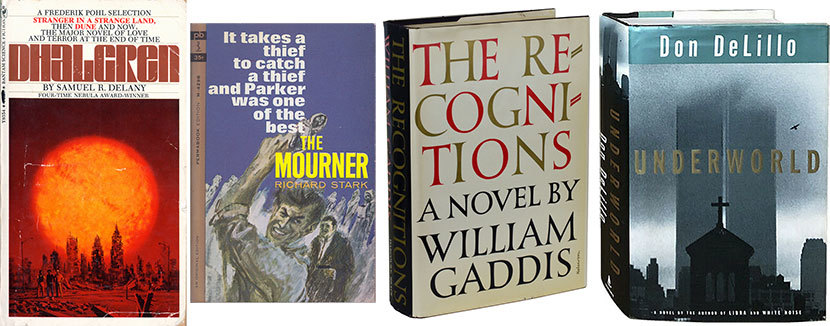
21. It was a Saturday afternoon on La Salle Street, years and years ago when I was a little kid, and around three o’clock Mrs. Shannon, the heavy Irish woman in her perpetually soup-stained dress, opened her back window and shouted out into the courtyard, “Hey, Cesar, yoo-hoo, I think you’re on television, I swear it’s you!”
— Oscar Hijuelos, The Mambo Kings Play Songs of Love (1989)
22. On my naming day when I come 12 I gone front spear and kilt a wyld boar he parbly ben the las wyld pig on the Bundel Downs any how there hadnt ben none for a long time befor him nor I aint looking to see none agen.
— Russell Hoban, Riddley Walker (1980)
23. No live organism can continue for long to exist sanely under conditions of absolute reality; even larks and katydids are supposed, by some, to dream.
— Shirley Jackson, The Haunting of Hill House (1959)
24. There was something about the coast town of Dunnet which made it seem more attractive than other maritime villages of eastern Maine.
— Sarah Orne Jewett, The Country of the Pointed Firs (1896)
25. They’re out there.
— Ken Kesey, One Flew Over the Cuckoo’s Nest (1962)
26. Imagine a ruin so strange it must never have happened.
— Barbara Kingsolver, The Poisonwood Bible (1998)
27. The towers of Zenith aspired above the morning mist; austere towers of steel and cement and limestone, sturdy as cliffs and delicate as silver rods.
— Sinclair Lewis, Babbitt (1922)
28. Probably I was in the war.
— Norman Mailer, Barbary Shore (1951)
29. From the small crossed window of his room above the stable in the brickyard, Yakov Bok saw people in their long overcoats running somewhere early that morning, everybody in the same direction.
— Bernard Malamud, The Fixer (1967)
30. City of Indianapolis, a cold spring day, late.
— Paul Metcalf, Genoa (1965)
31. They shoot the white girl first.
— Toni Morrison, Paradise (1997)
“They” are several men of the all–Black town of Ruby, Oklahoma. Morrison’s narrator never says which of the women living in a nearby former convent is white, but there is at least one clue offered in the novel. (In The Origin of Others, Morrison writes tantalizingly, “Some readers have told me of their guess, but only one of them was ever correct.”)
32. My name is Q___P___ & I am thirty-one years old, three months.
— Joyce Carol Oates, Zombie (1995)
33. To get there you follow Highway 58, going northeast out of the city, and it is a good highway and new.
— Robert Penn Warren, All the King’s Men (1947)
34. Now in these dread latter days of the old violent beloved U.S.A. and of the Christ-forgetting Christ-haunted death-dealing Western world I came to myself in a grove of young pines and the question came to me: has it happened at last?
— Walker Percy, Love in the Ruins (1971)
35. A screaming comes across the sky.
— Thomas Pynchon, Gravity’s Rainbow (1973)
36. A True Sport, the Mayor of New Orleans, spiffy in his patent-leather brown and white shoes, his plaid suit, the Rudolph Valentino parted-down-the-middle hair style, sits in his office.
— Ishmael Reed, Mumbo Jumbo (1972)
37. She was so deeply imbedded in my consciousness that for the first year of school I seemed to have believed that each of my teachers was my mother in disguise.
— Philip Roth, Portnoy’s Complaint (1969)
In a fictitious autobiographical essay that accompanied a 1994 paperback reprint edition of Portnoy’s Complaint (and is included in the LOA volume of his nonfiction writings), Roth tells how he came to write the first sentences of nineteen of his novels, from Goodbye, Columbus (1959) to Operation Shylock (1993): As a young man he found them on a typewritten sheet of paper left at his usual table in the campus cafeteria.
38. Serene was a word you could put to Brooklyn, New York.
— Betty Smith, A Tree Grows in Brooklyn (1943)
39. On a winter afternoon, unseasonably warm, a car was racing over country roads toward town.
— Elizabeth Spencer, The Voice at the Back Door (1956)
40. Now I believe they will leave me alone.
— Wallace Stegner, Angle of Repose (1972)
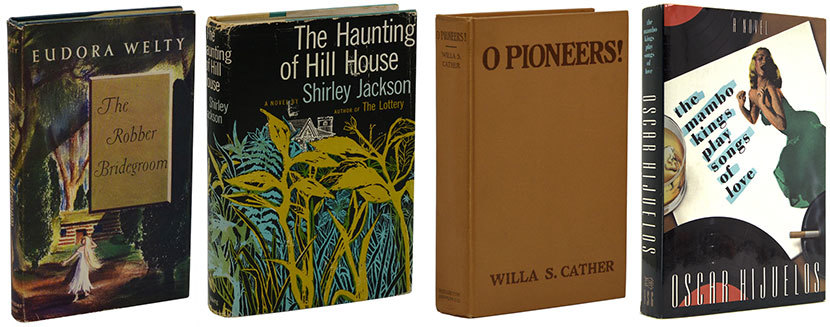
41. Father Egan left off writing, rose from his chair and made his way—a little unsteadily—to the bottle of Flor de Cana which he had placed across the room from his desk.
— Robert Stone, A Flag for Sunrise (1981)
42. The patient, an old-fashioned man, thought the nurse made a mistake in keeping both of the windows open, and her sprightly disregard of his protests added something to his hatred of her.
— Booth Tarkington, Alice Adams (1922)
43. This is a tale of a meeting of two lonesome, skinny, fairly old white men on a planet which was dying fast.
— Kurt Vonnegut, Breakfast of Champions (1973)
44. You better not never tell nobody but God.
— Alice Walker, The Color Purple (1982)
45. It was the close of day when a boat touched Rodney’s Landing on the Mississippi River and Clement Musgrove, an innocent planter, with a bag of gold and many presents, disembarked.
— Eudora Welty, The Robber Bridegroom (1942)
46. The Miss Lonelyhearts of The New York Post-Dispatch (Are-you-in-trouble?—Do-you-need-advice?—Write-to-Miss-Lonelyhearts-and-she-will-help-you) sat at his desk and stared at a piece of white cardboard.
— Nathanael West, Miss Lonelyhearts (1933)
47. When the guy with asthma finally came in from the fire escape, Parker rabbit-punched him and took his gun away.
— Donald Westlake (Richard Stark), The Mourner (1963)
48. “Undine Spragg—how can you?” her mother wailed, raising a prematurely-wrinkled hand heavy with rings to defend the note which a languid “bell-boy” had just brought in.
— Edith Wharton, The Custom of the Country (1913)
49. “Where’s Papa going with that ax?” said Fern to her mother as they were setting the table for breakfast.
— E. B. White, Charlotte’s Web (1952)
50. A long time ago, when all the grandfathers and grandmothers of today were little boys and little girls or very small babies, or perhaps not even born, Pa and Ma and Mary and Laura and Baby Carrie left their little house in the Big Woods of Wisconsin.
— Laura Ingalls Wilder, Little House on the Prairie (1935)
